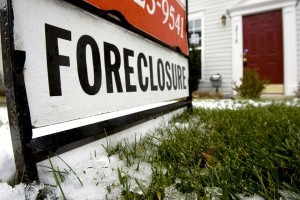 Since 2007 literally millions of Americans have lost their homes to foreclosure. With the tidal wave of foreclosures which swept across the country over the past 6 to 7 years, thousands of neighborhoods across the country saw home values plummet practically overnight. Due to these dramatic losses many homeowners found themselves unable to sell or refinance, and had effectively become trapped in homes which were not only decreasing in value but also were sometimes situated in neighborhoods which were decaying as a result of home abandonment and foreclosure. Not surprisingly, some of these homeowners devised schemes in which they would allow their homes to go into foreclosure and become repossessed by the banks so that the homes could then be repurchased at lower price.
Since 2007 literally millions of Americans have lost their homes to foreclosure. With the tidal wave of foreclosures which swept across the country over the past 6 to 7 years, thousands of neighborhoods across the country saw home values plummet practically overnight. Due to these dramatic losses many homeowners found themselves unable to sell or refinance, and had effectively become trapped in homes which were not only decreasing in value but also were sometimes situated in neighborhoods which were decaying as a result of home abandonment and foreclosure. Not surprisingly, some of these homeowners devised schemes in which they would allow their homes to go into foreclosure and become repossessed by the banks so that the homes could then be repurchased at lower price.
Though the practice was anything but rampant, homeowners who decided to default on their loans, allow their homes to go into foreclosure, and then purchase their homes back at a discount, stood to gain from many benefits of the process. They were able to live in their homes for years without paying any mortgage payments at all. Additionally, they were able to knock tens, or even hundreds of thousands, of dollars off of the principal of their homes. For example, a homeowner who held a home valued at $400,000 one day may have seen his or her home’s value reduced to $250,000 or less in a matter of months. This homeowner would have stood to save substantially by allowing the home to be repossessed and then buying it back, if he or she was able to pull the scheme off.
Mortgage securities companies Fannie Mae and Freddie Mac have long realized that homeowners may attempt to pull off this kind of default buyback scheme, and have written rules which would prevent such homeowners from purchasing their original homes back with a mortgage loan. Instead, the homeowners would need to purchase the homes in cash and pay certain penalties or fees as a result. The unintended consequences of these policies have actually hurt homeowners who lost their homes as a result of their inability to pay. A number of nonprofit organizations came to the rescue of affected homeowners, who had lost their homes to foreclosure, by purchasing the lost homes and selling those homes back to the original owners at the lower market value. It turns out that the Fannie and Freddie rules which were meant to prevent the default buybacks scheme has actually come into play in some of these nonprofit assistance transactions.
Many nonprofits across the country are actively fighting against the rules as they say that such policies prevent them from helping homeowners who legitimately lost their homes. The nonprofits have even found allies in state and local governments, such as Massachusetts Atty. General Martha Coakley, who recently filed suit against Fannie and Freddie over the policies. For now the policies continue, but pressure for a change is building.


